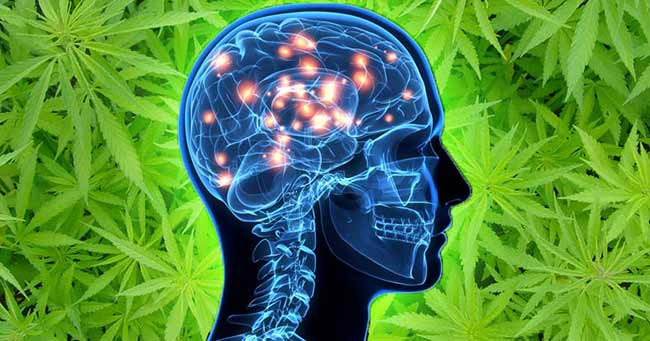New Study Confirms Effectiveness of THC Microdosing in Alzheimer’s Therapy
A new study from Brazil, published in the Journal of Medical Case Reports, reports that microdoses of THC derived from specialized, psychoactive cannabis strains are extremely safe, easy to use, and effective in treating symptoms typical of Alzheimer’s disease, as well as in slowing the progression of the illness.
The authors base their claims on the results of a two-year trial involving a single subject: a 75-year-old man diagnosed with moderate Alzheimer’s disease. According to the researchers, the patient had received his diagnosis two years before the trial began. During that time, he tried other available therapies for the disease, but they proved largely ineffective in slowing its progression, which continued to advance toward its severe stage by the start of the experiment. The subject suffered from all the characteristic symptoms of the condition, including fragmented memory loss, chronic joint pain and numbness, tremors in his limbs, and constant disorientation due to the disease’s impact on memory. At the start of the trial, he was unable to live independently and required constant care from medical staff and family members.
A note in the study highlights that the patient initially tried to treat his condition with memantine, the international standard for Alzheimer’s treatment. However, after a short period, the drug caused significant negative side effects without noticeably improving his symptoms. For this reason, his family contacted Brazil’s Ministry of Health and received permission to import and use therapeutic cannabis extracts from Europe containing THC and CBD in an 8:1 ratio. The man’s participation in Brazil’s limited therapeutic program attracted the attention of medical professionals from the University of Latin America and their partners at Johns Hopkins University in the United States.
Details of the Clinical Trial
During the 22-month trial, doctors regularly conducted comprehensive medical examinations and administered tests to assess the subject’s perception, memory, and reaction speed. Throughout this period, he took fixed daily doses of THC extract, which gradually increased from 500 micrograms per day at the start to 1 milligram by the end of the trial.
The researchers report “unprecedented” results, stating that within the first few weeks of THC extract use, the subject was able to significantly restore his normal cognitive and physiological functions. The substance eliminated physical symptoms such as chronic joint pain, tremors, and muscle spasticity. In addition, THC had a rapid and noticeable effect on the patient’s cognitive abilities, memory, and emotional regulation, effectively restoring his independence from family and medical assistance and eliminating the mood swings typical of advanced Alzheimer’s stages. Notably, the beneficial effects of the cannabinoid persisted for 42 months after the trial ended and regular THC use was discontinued.
“Since I finished the treatment, I haven’t experienced the severe episodes of forgetfulness and confusion that I used to have before discovering THC,” the patient reports. “Before treatment, it felt like I was trapped in a fog I couldn’t escape. Now, I clearly understand who I am, where I am, and what I’m doing. My days are no longer filled with hopelessness and lethargy—I feel alert, energetic, and most importantly, I am of sound mind, fully aware of myself and my actions.”
Medical Community’s Response
Doctors were clearly impressed by the rapid and powerful impact of THC on this otherwise incurable disease, as well as by the long-lasting effects observed years after the treatment cycle ended. “As a medication, this cannabinoid proved more effective in treating virtually all possible symptoms of Alzheimer’s disease,” the researchers note. “Within days of use, the patient seemed almost completely cured of the condition. However, it’s important to note that THC is not a direct cure for the disease. While it effectively suppresses symptoms and addresses their underlying causes, despite its long-lasting and profound effects, the substance essentially repairs damage in the patient’s brain tissue, requiring continued use to maintain the achieved results. In any case, this method of therapy is clearly safer and overall more effective than other available treatments and techniques.”



